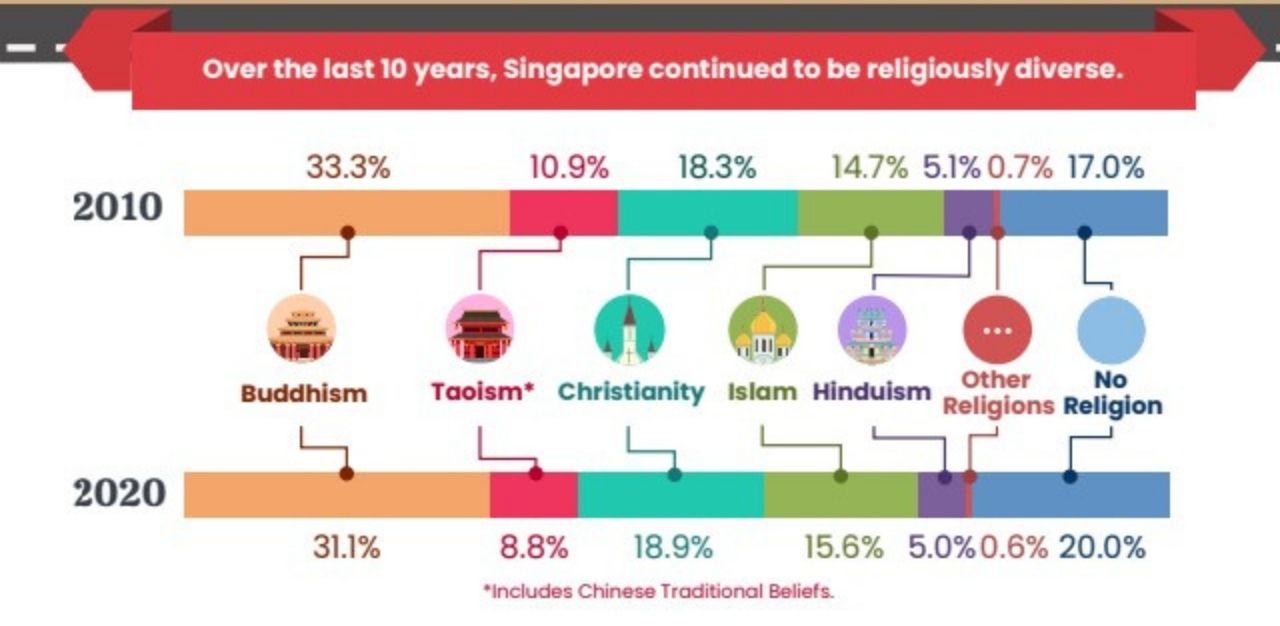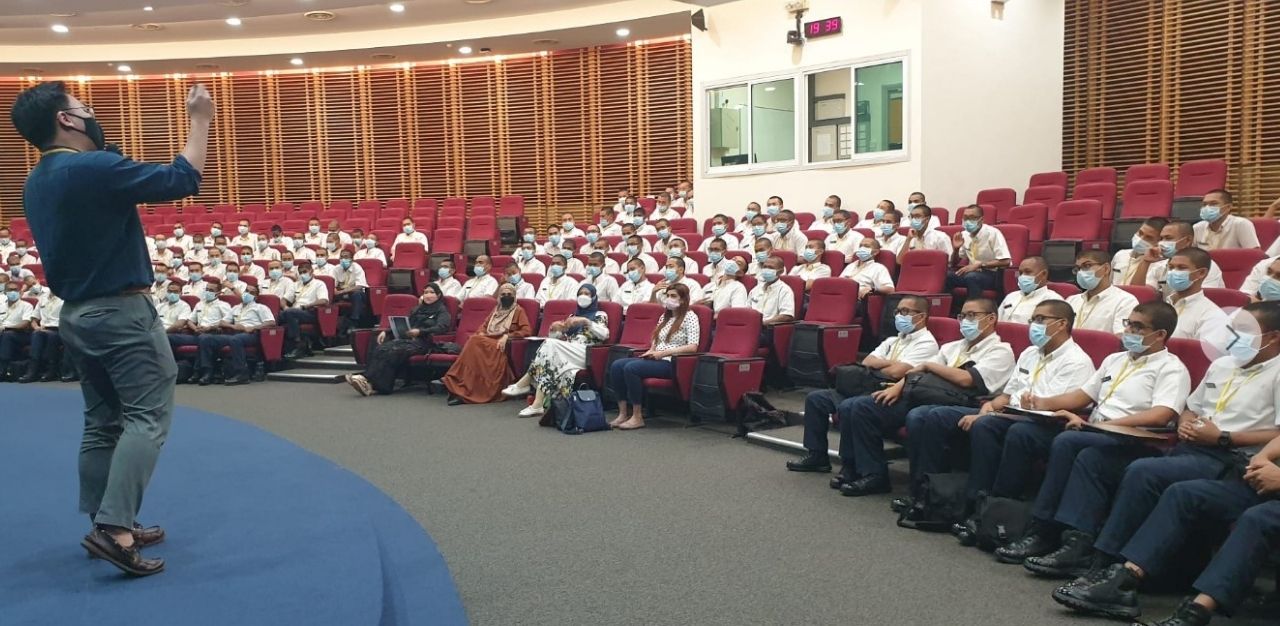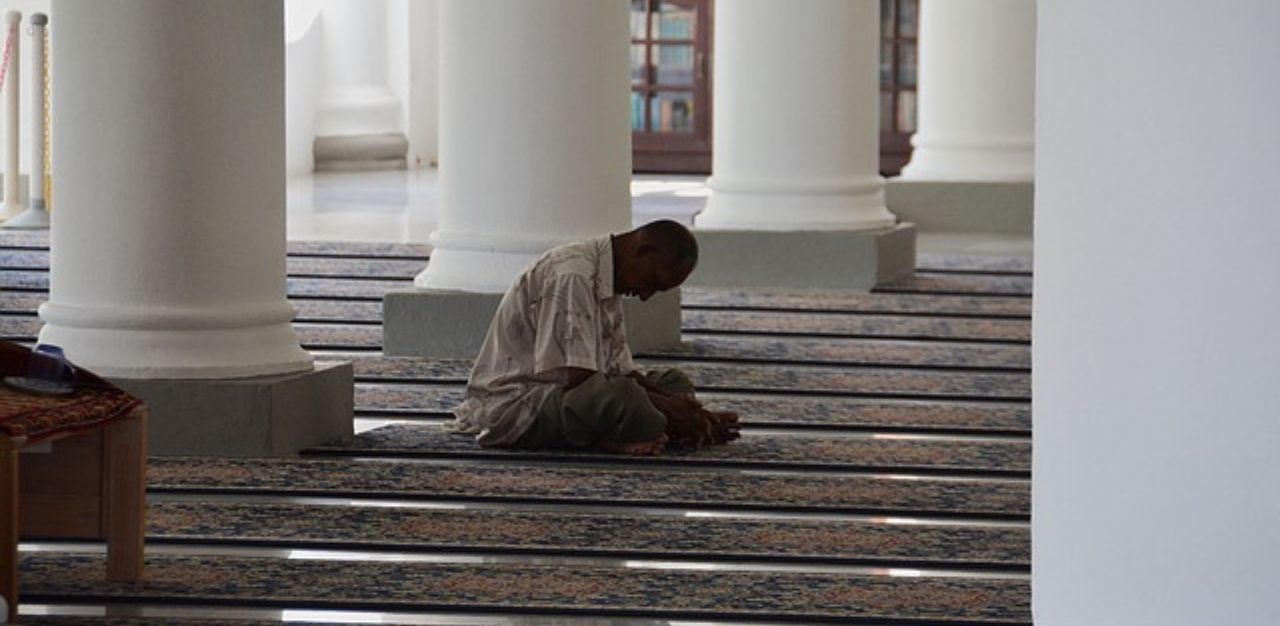As a leading global trading and financial hub, Singapore has the infrastructure and expertise that international corporations need to effectively access other ASEAN markets.
And in April this year, Trade and Industry Minister Gan Kim Yong said the country needs to achieve deep industry and business transformation, and build a bench of successful Singapore enterprises that can sustain strong growth and create good careers for our people.
This is usually carried out in a modern secular society where technology and finance rule, yet there are many Muslims in Singapore who have businesses that are thriving well and the people themselves able to continue to live and practice their faith freely.
“Over the past 56 years since our nation’s independence, the Muslim community has demonstrated resilience and a strong commitment towards progress and development in our socio-religious life,” Mufti Dr Nazirudin Mohd Nasir wrote in a 2021 National Day reflection.
“Islam teaches us to be uncompromising and firm in our values and our beliefs, but it also teaches us tolerance, kindness and respect when dealing with differences; to value friendship, harmony and peace without ever undermining our faith,” says Mr Adi Rahman, founder of E-Ventions International, a boutique integrated media consultancy and events management agency.
Speaking to TheHomeGround Asia, he says, “It is by upholding this principle that I believe we are able to maintain our strong presence as a Muslim community in Singapore.”
To survive in the financial arena, Mr Adi’s company possesses a deep understanding of the intricacies of Shariah-compliant laws to thrive even in the Muslim market, in spite of the secular pressures of operating within an open economy.
Mr Adi says as a Muslim, he practises Islam “not because of the pressures of loyalty or obedience to family” but because of his own “active learning of the religion which has only strengthened his conviction and commitment towards the faith”.
Regardless of language, race, and religion
Singapore was built on the fundamentals of religious and racial harmony. The slew of racial riots in the 1960s taught the country the repercussions of not doing so.
Since then, the authorities have gone to great lengths to ensure that this history does not repeat itself and maintain religious and racial harmony in Singapore.
Today, the religious demographics of Singapore is diverse and comprise seven classifications, with Buddhism being the largest at about 31.1 per cent, and Islam third at about 15.6 per cent, according to a 2020 population census.

Unlike constitutional policies of secularism in countries like France, where it outrightly rejects religious involvement in government affairs, Singapore practises an “accommodative secularism” as described by law professor Thio Li-ann. She said the state accommodates for the wants of a multi-religious society while still keeping state and religious organisations separate.
This was strengthened even more when Home Affairs Minister K Shanmugam, at a Parliamentary hearing in October 2019, said the link between government leaders and religious leaders is “extremely important”.
“It helps to build trust, build bonds, and that is important for society as a whole, and allows issues to be dealt with in an atmosphere of trust,” he said.
“As a Muslim, I believe that the teachings and principles of Islam are both timeless and universal, meant to prevail in spite of secularism and the influence of western values. Having a religious identity – calling myself a Muslim – does not diminish my ability to serve as a citizen of my country. Rather, I feel that it helps me approach life in general with a sense of purpose and mindfulness, especially in how I relate to and conduct myself around others,” says Mr Adi.
Feeding body, mind, and soul
In both private and civil sectors, provisions are made by the authorities to ensure that Halal certified food options are available for the Muslim community.
Autonomous universities are required to ensure sufficient food options to meet the different needs of students and staff, needing both Halal-certified and vegetarian options to be included in tender bids submitted by prospective food court operators.
In a 2016 Committee Of Supply Debate in Parliament, Senior Minister of State for Defence Dr Mohamad Maliki Bin Osman noted how dietary restrictions are accommodated for in a secular setting.
“Singapore is a secular state and all Singaporeans enjoy the right to practise their religions under our Constitution … In our camps, where space is available, we make provisions for halal food to be prepared separately from non-halal food, but our soldiers eat together in our dining halls. Where space is limited, vegetarian and halal food is brought in from centralised kitchens instead of being prepared in the cookhouses. In operations, we provide combat rations that are halal, and vegetarian options are available,” he said.
With such provisions, there is still a strong and growing demand for Halal-certified dining options throughout the island republic.
Statistics from the Islamic Religious Council of Singapore (Muis) had shown that in 2018, more than 53,000 F&B products were certified halal, and the number of halal certified restaurants have had a compound annual growth rate (CAGR) of 9.4 per cent since 2013, with over 4,000 premises certified halal in 2019. Of these, 16 per cent are located in hawker centres.
It was also highlighted in the report by Mastercard-Crescent Rating that local Muslim millennials, representing 24 per cent of the local Singaporean Muslim population, are the key driving force behind the growth of the halal food sector.
“A gradual change is already taking place, in my personal experience. Many F&B business owners are obtaining MUIS-certification in order to capitalise on the local Muslim market. There are more prayer areas available in shopping malls for Muslims. Singapore is a secular country, so Muslims should have no complaints unless a certain issue directly threatens the purity of Islam,” says Mr Jaffa Mohamed Salleh, who is self-employed.

In other sectors of the society, Muslim self-help groups like Yayasan MENDAKI forges strong ties with the local community and nurtures students and individuals to strive in education.
According to peer review journal Jurnal Pendidikan Islam, although Singapore cannot be used as a model for global Islamic education, it has several madrasahs and the government is also responsive in providing support for the continuation of Islamic education activities. Madrasahs in Singapore are full-time, religious institutions that offer a mix of Islamic religious education and secular education in their curricula. They offer primary to tertiary education.
A 2009 New York Times article said Islamic schools in Singapore are “more progressive”. Then head of Al Irsyad Razak Mohamed Lazim saw the strict balance between religious and secular studies as the future of Islamic education not only in Singapore but elsewhere.
Rightly so, because the 2020 Census showed that female Malays represent a high proportion of graduates.
“And this is something that we want to push. We want to push these women, who already have the education and aspirations, further; not stop at just having that degree. We want to push them to further their careers. So to help capture their imagination, we want the story of Asyikeen’s trailblazing journey towards a PhD in her area of specialisation to be told in her own words,” said Senior Manager of Research & Design Department at Yayasan MENDAKI Faisal Aman, in a previous interview with TheHomeGround Asia.
Data scientist Asyikeen Azhar tells TheHomeGround Asia that Yayasan MENDAKI’s tagline is “to read”.
“It was the first word revealed by Allah swt to Prophet Muhammad saw and advocates the pursuit of knowledge. It ties into how important education is and remains a core tenet of our faith. Even though education is not confined to a single religion, it diversifies knowledge and exposes perspectives for an individual, preparing them for the world,” she says.
Ms Asykeen, who only realised her dream five years after she started work as an accountant, broke both gender and race stereotypes when she went into the field of data science and analytics.
The role model among young women at Yayasan MENDAKI where she volunteers says because of the opportunity for education and able to do what she loves makes her proud to be a Muslim in Singapore.
There and back again

Mr Adi, too, says he is proud to be a Muslim because “it is, in its true essence, a religion of peace, love and mercy, transcending gender, race, ethnicity, tribe, nationality and even social class”.
“It is a religion that encourages its followers to strive for excellence in all areas of life; that gives hope to every sinner through the gift of sincere repentance/turning back to God. It is these realisations that make me feel awed and humbled to be a Muslim – because I understand that I am, in God’s eyes, worth inherently more than my physical appearance, social standing or even my past mistakes,” he says.
Echoing his sentiments, graduate Muhammad Shahirin Shamsul Bahrin, 26, says: “It is a beautiful religion with many kind believers who are receptive to individuals who are willing to learn about Islam. It has helped me become a more patient person and empathise with the predicaments of others. In particular the fasting month of Ramadan, where the less fortunate do not have the luxury of various amenities and foods as we have. In addition, Islam has taught me to be more receptive to other perspectives from different religious backgrounds.”
As one million Muslims gather in Mecca for the annual Hajj Pilgrimage, prostrating and reciting chants, Muslims in Singapore will be observing Hari Raya Haji Eid al-Adha on Sunday, 10 July.
In the words of Minister-in-charge of Muslim Affairs Masagos Zulkifli at the first of a series of seminars organised by the Islamic Religious Council of Singapore (Muis), to forge stronger ties with Muslim minority communities around the world, and “if we get it right, minority Muslim communities can have reference to relevant and sound principles to engender their participation with their fellow countrymen, with confidence and meaning”.
Join the conversations on TheHomeGround Asia’s Facebook and Instagram, and get the latest updates via Telegram.














